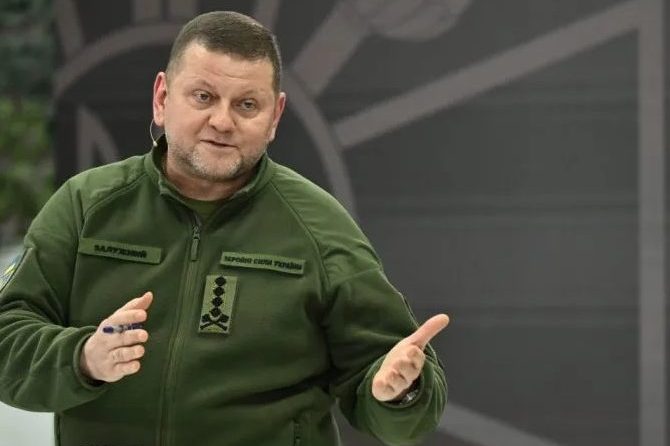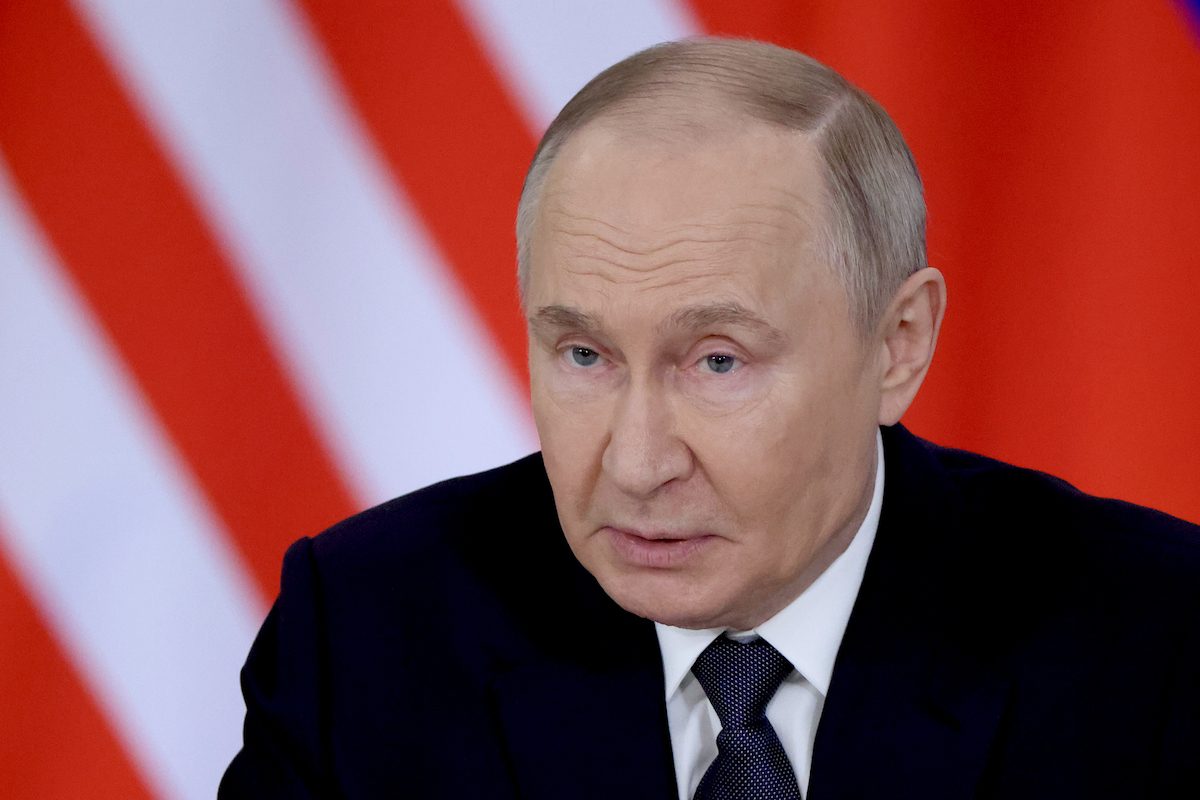Is he out or not? After a night of claim, counterclaim, rumor and speculation, it appears that Ukrainian president Volodymyr Zelensky has decided not to dismiss his commander-in-chief Valery Zaluzhny. Tension, however, clearly remains between the two — and this is bad news for Ukraine.
Ukrainian news outlets were the first to begin claiming that General Zaluzhny had either been dismissed or was about to be. Insider sources contacted by well-connected Western journalists were, on balance, also apparently confirming rather than denying the claims. Ukrainian parliamentarian Oleksy Goncharenko asserted that Zaluzhny had resigned and had refused the offer of an ambassadorial position in Europe. Quickly, though, the pendulum of reporting swung the other way, and as of this morning it was clear that Zaluzhny was still in position. As the defense ministry’s press office posted on Telegram: “Dear journalists, we’re answering everyone at once: no, this is not true.”
The first real bone of contention between the two was the plan for last year’s counter-offensive
So was this just an example of how, in the fervid modern social media environment, a baseless rumor can spread like proverbial wildfire? Not quite: there does seem to be something here. It is worth noting the specific language Zelensky’s spokesman used: “The President didn’t dismiss Zaluzhny.” Those sources who claimed that there had been a presidential decree replacing Zaluzhny but yet to be signed, perhaps awaiting consultations with Western backers, may well prove to have been accurate. A highly-placed European diplomat working on the Ukraine issue messaged me last night in horror and bewilderment, saying that their embassy in Kyiv had been sounded out yesterday about a military reshuffle. This morning they reported that “Bankova” — slang for the presidential administration, whose offices are on the street of that name — “seems to have regained its senses. What were they thinking?”
If there had been serious intent to dismiss Zaluzhny, the intensity of last night’s social media storm and the pitch of dismay will have provided a whole barrage of warning shots. Yet the rumors were plausible because they did speak to a genuine political rift that has opened between Zaluzhny and either Zelensky or his political team.
The presidential chief of staff, Andry Yermak, appears wary of the “Iron General” — he is the only public figure who approaches Zelensky for national popularity (in a poll at the end of last year, 98 percent of respondents expressed trust in him, compared to a still-stratospheric 93 percent for the president). Although elections scheduled for this year are not set to be held, this would not necessarily stop Yermak, whom one insider described as “always in campaign mode.” Despite the steady litany of praise heaped on Zelensky, there also seems to have been a degree of resentment at the way he sometimes had to share the international limelight with Zaluzhny, such as when Politico said he would “enter Ukrainian military lore as a historic figure.”
There is little real evidence that Zaluzhny is actively contemplating any kind of a political challenge. This is despite the charitable foundation he created back in 2022, widely regarded as the first step in establishing the basis for a political movement.
Instead, the animus seems to come from the presidential administration. The first real bone of contention was the plan for last year’s counteroffensive which, while not a total failure, did not take back much territory. Ukraine was able to seriously degrade many Russian capabilities and reopen the Black Sea, but the counteroffensive was clearly much less successful than hoped and planned. Zaluzhny, in concert with American military liaisons, had wanted to focus on a push to the south, to try and break the “land bridge” to Crimea. Zelensky, though, insisted on a broad attack right across the front. In hindsight, this meant lots of smaller-scale operations which could largely be foiled by the Russian defensive line.
When Zaluzhny later described the outcome as a “stalemate,” Zelensky’s team treated this as a criticism of the president’s strategy. Zelensky publicly rebuked him as over-pessimistic and the newly-appointed defense minister Rustem Umerov began dismissing and reassigning officers close to Zaluzhny.
Given that the initial rumors do seem to have originated in or close to the presidential administration, Zelensky may indeed have planned to replace Zaluzhny but backed away from the idea when the level of dismay became apparent. Alternatively, the idea could have been floated — whether by Zelesksy or Yermak — as a trial balloon.
While no one is entirely irreplaceable, the presumed candidates to replace Zaluzhny do not appear to be of his stature. The army commander Oleksandr Syrsky is considered to be much more Zelensky’s man, but lacks Zaluzhny’s standing amongst the military. Alternatively, the youthful and ambitious head of military intelligence, Kyrylo Budanov, has charisma and verve but no experience commanding larger-scale operations. Whatever the situation, the tensions between “Ze” and “Za” appear both real and genuinely politically destabilizing.
This article was originally published on The Spectator’s UK website.


























Leave a Reply